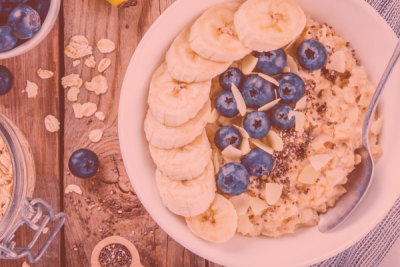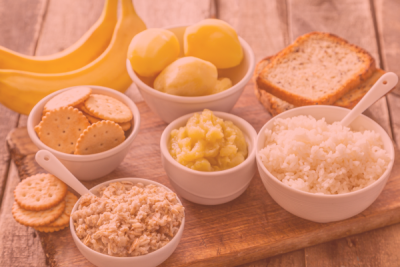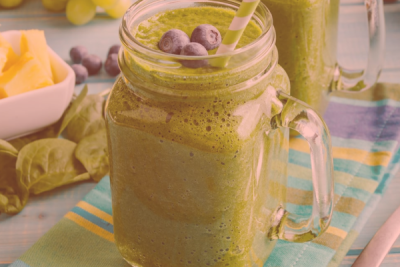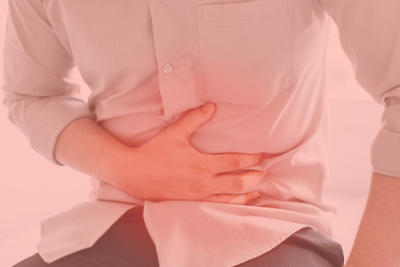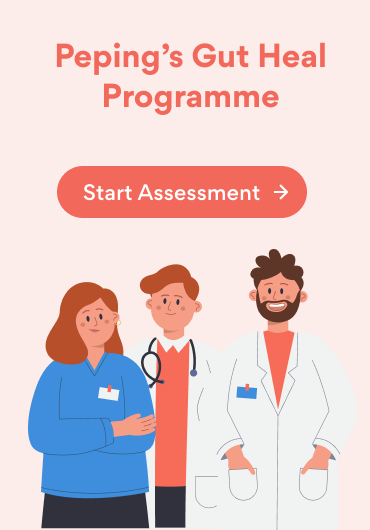Whether it’s after a hearty meal or seemingly out of nowhere, bloating can be a bothersome experience that leaves us feeling uncomfortable and self-conscious. That’s why in this blog, on popular demand, we’re addressing the most frequently asked questions about bloating. And unlike other FAQ sections, we’re doing so in DETAIL to help you understand and manage this common digestive woe!
So sit back, relax and let’s deflate those bloating queries, one question at a time.
What causes bloating?
Bloating can stem from various factors that disrupt the delicate balance of our digestive system. -Overeating, for instance,overwhelms the digestive process, resulting in bloating.
-Gas-inducing foods, including beans and cruciferous vegetables like broccoli and cabbage, release gases during digestion, contributing to bloating.
-Even swallowing air while eating or drinking rapidly can introduce excess air into the digestive system, leading to bloating.
-Food intolerances, such as lactose intolerance or gluten sensitivity, can cause bloating due to inadequate digestion of certain substances.
-And lastly, constipation, hormonal fluctuations, and even certain medical conditions can be responsible for bloating episodes.
How long does bloating typically last?
The duration of bloating can depend on several factors, including the underlying cause and individual differences. In many cases, bloating is temporary and tends to resolve within a few hours to a couple of days as the digestive system processes the food and gas. Lifestyle changes, such as practicing mindful eating, staying hydrated, and engaging in regular physical activity, can help alleviate bloating and promote faster relief.
However, if bloating persists for an extended period or becomes chronic, it may indicate an underlying issue that requires further investigation. Severe or persistent bloating, especially when accompanied by other concerning symptoms like abdominal pain, unexplained weight loss, changes in bowel habits, or blood in the stool, should be evaluated by a healthcare professional. They can perform a thorough examination, consider medical history, conduct diagnostic tests if necessary, and provide appropriate guidance and treatment tailored to the individual’s specific situation.
It’s important not to ignore persistent bloating or dismiss it as a normal occurrence, particularly if it significantly impacts daily life or is associated with worrisome symptoms. Seeking medical advice can help identify and address the underlying cause, providing effective management strategies and peace of mind.
Can stress contribute to bloating?
Stress has a remarkable influence on our bodies, and our digestive system is no exception. When we experience stress, our body releases cortisol, often referred to as the “stress hormone.” Elevated cortisol levels can have a direct impact on our digestive processes, potentially leading to bloating.
One way that stress contributes to bloating is by affecting the movement and contractions of the gastrointestinal tract. High levels of cortisol can disrupt the normal rhythmic contractions of the muscles in the digestive system, slowing down the passage of food and causing it to linger in the digestive tract for longer periods. This can result in bloating and discomfort. Moreover, stress can alter the balance of gut bacteria, the collection of microorganisms that reside in our digestive system and play a vital role in digestion. Disruptions in the gut microbiome can lead to changes in digestion and gas production, potentially contributing to bloating.
Stress can also influence our eating habits and choices. During times of stress, people may resort to unhealthy coping mechanisms, such as consuming high-fat or high-sugar foods, eating too quickly, or skipping meals. These behaviors can disrupt digestion and lead to bloating.
Are there any natural remedies for bloating?
When it comes to natural remedies for bloating, there are a few options worth considering.
Herbal teas like chamomile, peppermint, turmeric, and ginger have long been recognized for their potential to aid digestion and relieve gas, making them valuable remedies for bloating. They may also relieve bloating by helping reduce water retention.
In Ayurveda, chewing betel leaves/ “paan”, after a meal, is considered a digestive stimulant. Betel leaves can help stimulate the secretion of digestive juices, relieve constipation, and aid in reducing stomach bloating.
Cardamom, traditionally used as a stomachic and anti-flatulent, can be prepared by making a fine powder of cardamom, dry ginger (shunti), and rock salt. Consuming this mixture with warm water may help alleviate bloating and indigestion.
Star anise fruit acts as a carminative and is known for its use in managing indigestion and relieving bloating. Mixing anise powder with honey can be effective in addressing digestive issues such as bloating, flatulence, stomach pain, and colic.
Hing (asafoetida), a popular ingredient in various foods, is believed to reduce bloating, menstrual pain, and indigestion. Consuming warm water with some hing added to it may help alleviate bloating.
Ajwain, used as a herbal remedy in Iran for gastrointestinal conditions including bloating, possesses anti-inflammatory properties that may benefit bloating. Chewing ajwain seeds or preparing ajwain water by boiling the seeds and allowing it to cool before drinking can provide relief.
Turmeric, renowned for its healing properties, acts as a digestive stimulant and carminative. Adding turmeric as a dry powder to plain water or buttermilk can aid in improving digestion, reducing gas, and alleviating bloating.
In addition, mindful eating, known as “ati-saattvik bhojan” is an approach that involves slowing down, chewing food thoroughly, and being fully present during meals. It encourages individuals to appreciate the flavors, textures, and nourishment provided by the food which can aid digestion and reduce bloating. Staying hydrated, preferably with non-carbonated beverages, and engaging in regular physical activity also promote healthy digestion and minimize bloating.
Does carbonated drinks cause bloating?
Carbonated drinks, such as soda and your favourite fizzy drinks, can indeed contribute to bloating. The characteristic fizziness of these beverages is due to the presence of carbon dioxide gas, which is released as bubbles when the drink is opened or consumed. When you consume carbonated drinks, you are essentially ingesting the gas along with the liquid.
Once inside your digestive system, the carbon dioxide gas can accumulate and create additional pressure, leading to bloating and discomfort. The bubbles can get trapped in your stomach and intestines, causing distension and a feeling of fullness. Furthermore, carbonated drinks can also stimulate the release of gastrin, a hormone that triggers the production of stomach acid. This increased acid production can further contribute to bloating and feelings of discomfort.
If bloating is a concern for you, it’s advisable to choose non-carbonated beverages instead. Opting for herbal teas, lemon-water or other non-fizzy drinks can help minimize the intake of excess gas and reduce the likelihood of bloating.
Can certain medications cause bloating?
Certain medications, including antibiotics, painkillers, and certain antidepressants, have the potential to disrupt the natural balance of gut bacteria, leading to bloating as a side effect. Antibiotics, while effective in targeting harmful bacteria, can also disturb the beneficial bacteria in the gut, resulting in an imbalance known as dysbiosis. This imbalance can contribute to bloating and other gastrointestinal symptoms.
Painkillers, such as nonsteroidal anti-inflammatory drugs (NSAIDs) and opioids, may irritate the stomach lining or slow down the movement of the gastrointestinal tract, leading to bloating and constipation.
Similarly, some antidepressants, particularly selective serotonin reuptake inhibitors (SSRIs), can affect gut motility and result in slower digestion and increased gas accumulation.
If you suspect that your medication is causing bloating, it is important to consult with your healthcare provider for alternative options or adjustments to your current treatment plan.
Is there a link between bloating and food intolerances?
Certainly! There is a well-established link between bloating and food intolerances. Food intolerances occur when the body has difficulty digesting certain substances or components of food. Two common examples of food intolerances are lactose intolerance and gluten sensitivity.
Lactose intolerance is the inability to fully digest lactose, the sugar found in milk and dairy products. When individuals with lactose intolerance consume lactose-containing foods, such as milk, ice cream, or cheese, their bodies lack sufficient amounts of the enzyme lactase to break down lactose. As a result, undigested lactose can ferment in the gut, leading to symptoms like bloating, gas, abdominal discomfort, and sometimes diarrhea.
Gluten sensitivity or non-celiac gluten sensitivity is another food intolerance that can cause bloating. Gluten is a protein found in wheat, barley, and rye. Some individuals experience digestive symptoms, including bloating, when they consume gluten-containing foods. Unlike celiac disease, which is an autoimmune disorder triggered by gluten, gluten sensitivity does not involve the same immune response but can still result in digestive discomfort.
Identifying food intolerances can be challenging, as symptoms can be delayed and vary from person to person. If you suspect a particular food is triggering your bloating episodes, keeping a food diary can be helpful. Note the foods you consume and any associated symptoms. Over time, patterns may emerge, allowing you to identify potential triggers.
Consulting with a healthcare professional or a registered dietitian is crucial for an accurate diagnosis and management of food intolerances.
Can bloating be a symptom of a more serious condition?
While bloating is typically a benign and common issue, it can occasionally be a symptom of a more serious underlying condition. Here are a few examples:
- Irritable Bowel Syndrome (IBS): IBS is a chronic gastrointestinal disorder characterized by abdominal pain, changes in bowel habits, and bloating. Bloating is a prominent symptom in many individuals with IBS and is often accompanied by other digestive issues. It is important to consult a healthcare professional for a proper diagnosis and to develop a management plan for IBS-related symptoms.
- Inflammatory Bowel Disease (IBD): Inflammatory bowel disease, which includes conditions like Crohn’s disease and ulcerative colitis, is characterized by chronic inflammation in the digestive tract. Bloating can occur as a result of the inflammation and altered bowel function associated with these conditions. If bloating is persistent, accompanied by abdominal pain, diarrhea, or other concerning symptoms, it is important to seek medical evaluation.
- Ovarian Cancer: While bloating is a common symptom of various conditions, it can also be an early sign of ovarian cancer. Ovarian cancer may cause persistent and unexplained bloating, along with other symptoms like pelvic pain, changes in appetite, and frequent urination. It’s important to note that bloating alone is unlikely to be a definitive sign of ovarian cancer, but if it persists and is accompanied by other concerning symptoms, it’s essential to seek medical advice for further evaluation.
It’s crucial to recognize that the presence of bloating alone does not necessarily indicate a serious underlying condition. However, if you have persistent or severe bloating, unexplained weight loss, blood in your stool, severe abdominal pain, or other worrisome symptoms, it’s important to consult a healthcare professional for a proper evaluation and diagnosis. They will be able to assess your symptoms, conduct any necessary tests, and provide appropriate guidance and treatment if needed.
Does menstrual bloating differ from regular bloating?
Menstrual bloating, often referred to as “period bloating,” is a distinct type of bloating that occurs in many women during their menstrual cycle. It is primarily attributed to hormonal fluctuations and water retention in the body.
During the menstrual cycle, hormone levels, particularly estrogen and progesterone, undergo significant changes. These hormonal shifts can influence fluid balance in the body, leading to water retention. The retention of excess fluids can cause a feeling of fullness and bloating in the abdomen.
In addition to water retention, hormonal changes can also affect digestion and intestinal motility, potentially leading to slower digestion and increased gas accumulation, which contribute to bloating during menstruation.
It’s important to note that menstrual bloating is a temporary symptom that usually resolves as the menstrual cycle progresses. However, if bloating is severe, accompanied by severe pain, or significantly impacts daily activities, it’s advisable to consult a healthcare professional for further evaluation and to rule out any underlying conditions that may be contributing to the symptoms.
When should I seek medical help for bloating?
If you experience severe or persistent bloating, unexplained weight loss, blood in your stool, severe abdominal pain, or other worrisome symptoms, it is essential to seek medical help promptly.
Severe bloating that is intense, prolonged, and interferes with your daily activities may indicate an underlying condition that requires medical evaluation. Unexplained weight loss, especially if you haven’t made any intentional changes to your diet or exercise routine, can be a concerning sign and should be investigated by a healthcare professional. Blood in the stool, whether visible or as black, tarry stools, can be a potential indication of gastrointestinal bleeding and requires immediate medical attention. Additionally, severe abdominal pain along with bloating could be a sign of a more serious condition that needs to be evaluated and treated.
Seeking medical help in these situations is crucial to rule out any underlying conditions, receive an accurate diagnosis, and determine the appropriate treatment for your symptoms.
By understanding the causes of bloating, we can take proactive steps to manage and prevent it. Remember, it’s all about finding a balance between enjoying our favourite foods, being mindful of your eating habits, and tuning in to our body’s unique needs. Now, armed with this bloating exposé, we hope you’re ready to face your tummy’s inflated foes head-on!





